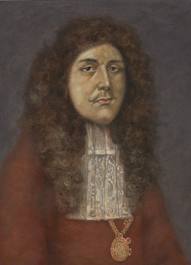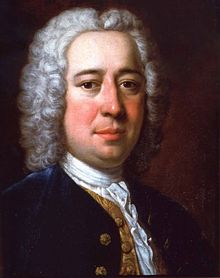This Week in Classical Music: August 12, 2024. Through the Centuries. This week covers four centuries of music: the oldest one, Heinrich Ignaz Biber, was born in 1644, and the most recent, Lucas Foss, in 1922 (he died in the 21st century, in 2009). There were too many in between, but we’ll mention some. Let’s start with Biber, a Bohemian-Austrian composer born on August 12th of 1644 in Wartenberg, Bohemia, then part of the Hapsburg Empire, now Stráž pod Ralskem in the Czech Republic. A highly reputable violinist, he was employed in courts of Graz, Olmütz (now Olomouc), Kremsier (now Kroměříž), and eventually, by the Archbishop of Salzburg, where one hundred years later Mozart would also be employed. Biber stayed in Salzburg for the rest of his life, eventually becoming the Kapellmeister. The finest or at least the most famous music composed by Biber was collected in his Mystery (sometimes called Rosary) Sonatas, in German Rosenkranzsonaten,15 short sonatas for the violin and continuo. Here’s the 3rd of the sonatas, The Nativity. Franzjosef Maier plays a Baroque violin; he’s accompanied by the organ, cello and theorbo, all of the Baroque era.
Two more composers were born in the 17th century this week: Nicola Porpora, in 1686, and Maurice Greene, in 1696. Porpora, born in Naples on August 17th of 1686, was one of the most important opera composers of the era, first challenging Alessandro Scarlatti in Naples, and then becoming Handel’s competitor in London. He was also a famous music teacher: his pupils included the castrati Farinelli and Caffarelli, and also Haydn. Porpora composed more than 50 operas, plus oratorios, cantatas and instrumental music. Here’s the aria In Amoroso Petto from Porpora’s opera Arianna In Nasso. Simone Kermes is the soprano, Vivica Genaux – the mezzo. Cappella Gabetta is conducted by Andrés Gabetta.
Maurice Green, born in London on August 12th of 1696 was an English composer known for his “anthems,” short sacred choral works. Lord, Let Me Know Mine End (here) is his most famous composition.
If three composers were born in the 17th century, only one comes from the 18th: Antonio Salieri, famous for all the wrong reasons. Three Frenchmen were born in the 19th century, Benjamin Godard, on August 18th of 1849, Gabriel Pierné, on August 16th of 1863, in Metz, and at the end of the century, on August 15th of 1890, Jacques Ibert. Of the three, Ibert seems to us to be the most interesting. The 20th century gave us only one composer, Lucas Foss. Foss was born in Berlin on August 15th of 1922 into a Jewish family (Benjamin Godard was also Jewish). Foss’s family left for Paris as soon as the Nazis came to power, and in 1937 they moved to the US. Foss was a prodigy, a talented composer, a lifelong friend of Leonard Bernstein, a teacher, music director and much more. We’ll write about him in detail next year.
Through the Centuries, August 2024
This Week in Classical Music: August 12, 2024. Through the Centuries. This week covers four centuries of music: the oldest one, Heinrich Ignaz Biber, was born in 1644, and the most recent, Lucas Foss, in 1922 (he died in the 21st century, in 2009). There were too many in between, but we’ll mention some. Let’s start with Biber, a Bohemian-Austrian composer born on August 12th of 1644 in Wartenberg, Bohemia, then part of the Hapsburg Empire, now Stráž pod Ralskem in the Czech Republic. A highly reputable violinist, he was employed in courts of Graz, Olmütz (now Olomouc), Kremsier (now Kroměříž), and eventually, by the Archbishop of Salzburg, where one hundred years later Mozart would also be employed. Biber stayed in Salzburg for the rest of his life, eventually becoming the Kapellmeister. The finest or at least the most famous music composed by Biber was collected in his Mystery (sometimes called Rosary) Sonatas, in German Rosenkranzsonaten,15 short sonatas for the violin and continuo. Here’s the 3rd of the sonatas, The Nativity. Franzjosef Maier plays a Baroque violin; he’s accompanied by the organ, cello and theorbo, all of the Baroque era.
recent, Lucas Foss, in 1922 (he died in the 21st century, in 2009). There were too many in between, but we’ll mention some. Let’s start with Biber, a Bohemian-Austrian composer born on August 12th of 1644 in Wartenberg, Bohemia, then part of the Hapsburg Empire, now Stráž pod Ralskem in the Czech Republic. A highly reputable violinist, he was employed in courts of Graz, Olmütz (now Olomouc), Kremsier (now Kroměříž), and eventually, by the Archbishop of Salzburg, where one hundred years later Mozart would also be employed. Biber stayed in Salzburg for the rest of his life, eventually becoming the Kapellmeister. The finest or at least the most famous music composed by Biber was collected in his Mystery (sometimes called Rosary) Sonatas, in German Rosenkranzsonaten,15 short sonatas for the violin and continuo. Here’s the 3rd of the sonatas, The Nativity. Franzjosef Maier plays a Baroque violin; he’s accompanied by the organ, cello and theorbo, all of the Baroque era.
Two more composers were born in the 17th century this week: Nicola Porpora, in 1686, and Maurice Greene, in 1696. Porpora, born in Naples on August 17th of 1686, was one of the most important opera composers of the era, first challenging Alessandro Scarlatti in Naples, and then becoming Handel’s competitor in London. He was also a famous music teacher: his pupils included the castrati Farinelli and Caffarelli, and also Haydn. Porpora composed more than 50 operas, plus oratorios, cantatas and instrumental music. Here’s the aria In Amoroso Petto from Porpora’s opera Arianna In Nasso. Simone Kermes is the soprano, Vivica Genaux – the mezzo. Cappella Gabetta is conducted by Andrés Gabetta.
Maurice Green, born in London on August 12th of 1696 was an English composer known for his “anthems,” short sacred choral works. Lord, Let Me Know Mine End (here) is his most famous composition.
If three composers were born in the 17th century, only one comes from the 18th: Antonio Salieri, famous for all the wrong reasons. Three Frenchmen were born in the 19th century, Benjamin Godard, on August 18th of 1849, Gabriel Pierné, on August 16th of 1863, in Metz, and at the end of the century, on August 15th of 1890, Jacques Ibert. Of the three, Ibert seems to us to be the most interesting. The 20th century gave us only one composer, Lucas Foss. Foss was born in Berlin on August 15th of 1922 into a Jewish family (Benjamin Godard was also Jewish). Foss’s family left for Paris as soon as the Nazis came to power, and in 1937 they moved to the US. Foss was a prodigy, a talented composer, a lifelong friend of Leonard Bernstein, a teacher, music director and much more. We’ll write about him in detail next year.